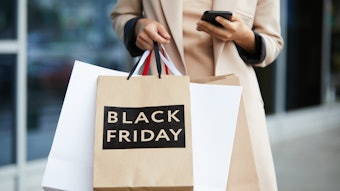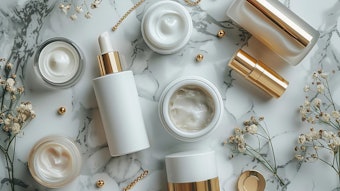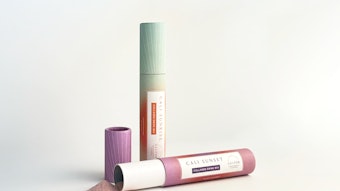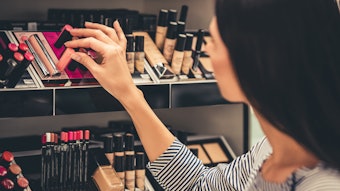Kelly Hill is a big fan of subscription sample boxes featuring hair care products. She has purchased boxes from CurlKit, as well as the Hot Coco Box from Cream & Coco and a Fetish Fix Box from Purgasm, both of which include both gourmet hair and skin products.
“I would have never purchased many products without getting the sample size first because some are expensive—$18 for a whipped pomade!” Hill says. “But when I got the sample and realized the quality ingredients she used, I understood why her price point was high and why it was worth it.”
Sample box subscription services have become one of the biggest beauty industry trends right now, with a growing number of companies offering an array of boxes focused on everything from hair to makeup, nail care to snacks, and babies to pets. And one of the hottest niches in the sample box category is boxes targeted at women with curls and coils. During the past two years, a number of boxes in this category have launched, including CurlBox, CurlKit, Dekem Dekem, OnyxBox, CurlMart and Curl Collection. Larger subscription box services like Ipsy and Birchbox also have offered boxes to the curly market.
And while some question whether sampling box subscription services are just a trend—the jury is still out on whether these boxes lead to significant sales—they have become a big part of the textured hair landscape for both consumers and brands. If you look at the statistics, it’s not a mystery why there has been such a boom in this space.
Seeking Product Options
Textured hair consumers, who are always in search of the Holy Grail product for their curls and coils, spend an average of $35 a month on hair care products, and those with coily hair spend an average of $37 a month. Compare this to the straight-haired consumer, who spends an average of $29 a month on hair care products, according to Wave III of the Texture Trends report, a consumer insights report on the textured hair market produced by TextureMedia. Forty-one percent (41%) of textured hair consumers sample hair care products before they purchase them, according to TextureTrends, and with the boom in sample boxes for textured hair care products, that percentage is growing.
The challenge for a curly consumer is to find the appropriate regimen for her specific curl type and concerns. Sample boxes give her the ability to try many different brands and types of products to find what’s best. “Curly consumers are heavy product users, and sampling gives them the opportunity to access a variety of products without committing to a full-size product purchase,” says Mariel Juarbe, brand marketing manager of curly brand Ouidad, which has sampled through Birchbox, CurlBox and CurlMart.
For brands in the category, these boxes provide a highly targeted way to reach this consumer while increasing overall brand awareness. “Boxes are a qualified sampling opportunity and a great way to target specific communities with special interests and needs,” said Richelieu Dennis, founder and CEO of Sundial Brands, maker of the SheaMoisture and Nubian Heritage brands.
SheaMoisture has worked with a number of subscription boxes to promote new and existing products across categories. Dennis explains that sampling boxes are a valuable part of the company’s marketing strategy because they provide a relatively low-cost way to target specific communities with special interests and needs.
“Subscription boxes are also a great way to solicit valuable product reviews,” Dennis notes, “with many subscription services encouraging members to share their impressions on social media platforms such as Instagram, Twitter and YouTube, often incentivizing them to do so.” And product reviews are considered one of the two most powerful factors for consumers searching for new hair products—just behind ingredients, according to the TextureTrends report.
“Sample boxes are a win for both brands and consumers,” says Dennis.
Speaking from Experience
Many of the sampling boxes in the textured hair category were created by women with curls and coils. Dekem Dekem Inc. was the brainchild of Yvonne Terry, a woman who transitioned from relaxers to her natural hair texture 11 years ago. “I spent thousands of dollars trying to find the right products to keep my hair nicely styled and healthy,” Terry recalls. “Over the years, I learned what worked best for my [coils], but I also learned a bit about [curly hair] and the best products for those hair types.”
Friends and family began seeking her out for recommendations about products, and she soon was sending them hair product packages to try. “I loved sending out these care packages, but it became very costly,” Terry says. “Shortly thereafter, Dekem Dekem was born.”
While providing consumers with an easy and fun way to sample products before they buy, Terry says brands are better able to target consumers who may not know about particular product lines. Although Dekem Dekem features well-known national brands, the boxes also showcase many of the smaller niche brands, grassroots brands that have helped shape the category. Terry works with 10 to 12 different brands and doesn’t repeat products within a 12-month period. “Our goal is to match the right product with the right subscriber,” she explains. “In doing so, this presents a win-win for both Dekem Dekem and the brands featured in the Dekem box.”
Different sample box subscription services appeal to different brands and consumers depending on their model. With the Birchbox model, which typically has hundreds of thousands of subscribers, the focus is on larger, mass brands that can afford to supply such large number of samples—which is typically not an option for many smaller brands. Birchbox also provides brands with market research from subscribers. With the Ipsy model, the brand pays a price per sample, accessing the company’s influential vloggers as well as its engaged customer base. Social media accompanies the video to create buzz, and the brand is guaranteed exposure. The PinchMe model lets consumers choose their own products from a wide assortment on the site—everything from nutrition bars to hair care—asking for feedback in return.
And then are the boxes created specifically for curly/coily consumers. They have carved out a unique niche, keeping their subscription base small so they can include the smaller brands many consumers are looking for. They also have the ability to target the social media channels most frequented by women with curly and coily hair textures. For that reason, many brands in the textured hair space prefer to work with these types of subscription boxes.
“The sample boxes for curly hair are very targeted,” says Steve Torch, CEO of Curly Hair Solutions, a Toronto-based curly hair brand that has sampled through Birchbox, CurlBox and CurlKit. “Sampling outside of these curl boxes doesn’t allow you to get a true test as people with straight hair also get your samples.” Before these targeted subscription box companies existed, it was very difficult to sample a mass quantity to the right target market, especially for brands that aren’t in mass retail, Torch says.
Getting the Word Out
For new brands, subscription boxes can be a vital part of the marketing strategy. “Sampling can prove to be a significant financial spend for a brand, and it’s only effective if a brand is able to get that product into the hands of the target market,” says Nancy Twine, creator of Briogeo, a two-year-old curl brand. “Otherwise, samples end up in the trash or stocked away in a drawer, never to be used. Sampling programs that provide a customized approach to distributing samples allow brands to target their sampling efforts toward the customers that matter the most.”
One of the hottest boxes in the textured hair subscription space is CurlKit. Founded in 2012 by husband-and-wife-team Heather and Dino Cummings, the company experienced a 5000% increase in subscribers in its first year alone.
“A product that works for my curls may not work the same way on another person,” says Heather Cummings. “Hence the need to sample and try different products until you find the one that works. Once you do, this product becomes a part of your hair regimen.” Like Birchbox, CurlKit offers an e-commerce site where subscribers can purchase full-size products featured in the CurlKit subscription boxes.
And while some of boxes are focused on hair texture, others are focused on the black beauty consumer. “We were looking to create a destination to help manage black beauty that was more user friendly,” says Delali Kpodzo of two-year-old We Are Onyx. “I think our hair has such specific needs. Beauty boxes have been able to cherry pick the brands and products that work with different types of products.”
Questions and Opportunities
While brands have embraced what sampling subscription box services have to offer, some worry that with all the sampling, many consumers may no longer purchase products, especially since many of the boxes offer full-size products rather than sample sizes.
One brand manager, whose company has sampled with a number of subscription boxes, says he’s not sure how many of these sampling box customers turn into new customers. While it might be a valuable service up front, he worries that it won’t have a long-term impact on the brand because many consumers will move on to the brand offered in their next box. He also worries that the attrition rate is high. “I think we have a box bubble in this space right now,” he says
However, many brands have recruited loyal, valuable consumers via subscription boxes. It is up to each beauty brand to figure out the sampling and marketing strategy that works best for its business.
Michelle Breyer is president and co-founder of TextureMedia, one of the world’s largest social media hair care platforms. It works to empower, engage and educate its multicultural community of female influencers. Based in Austin, Texas, TextureMedia has an audience of more than 30 million unique visitors a year to its NaturallyCurly, CurlyNikki, CurlMart and CurlStylist websites.










